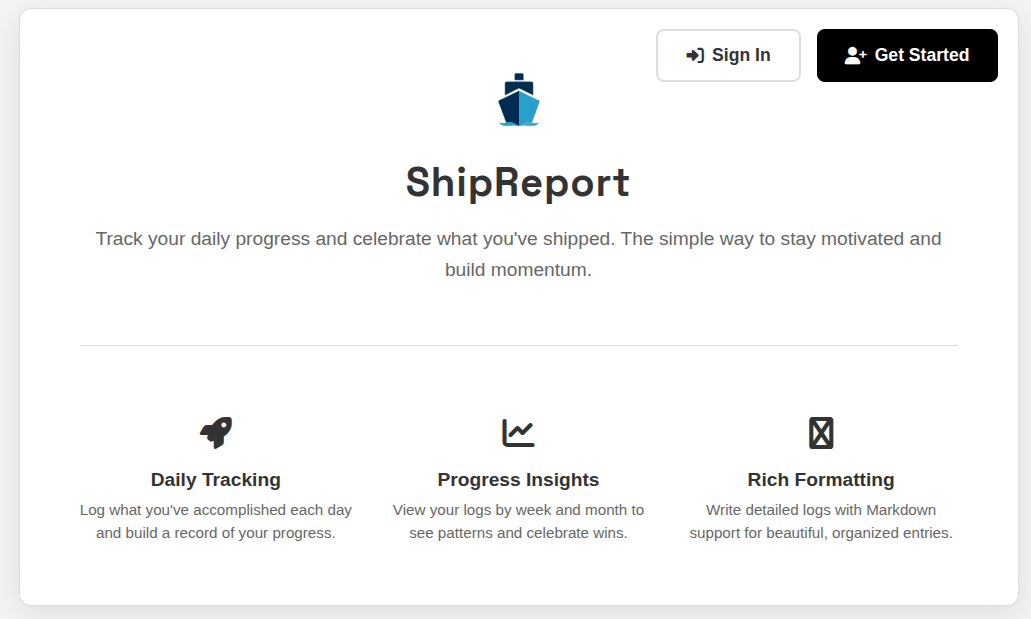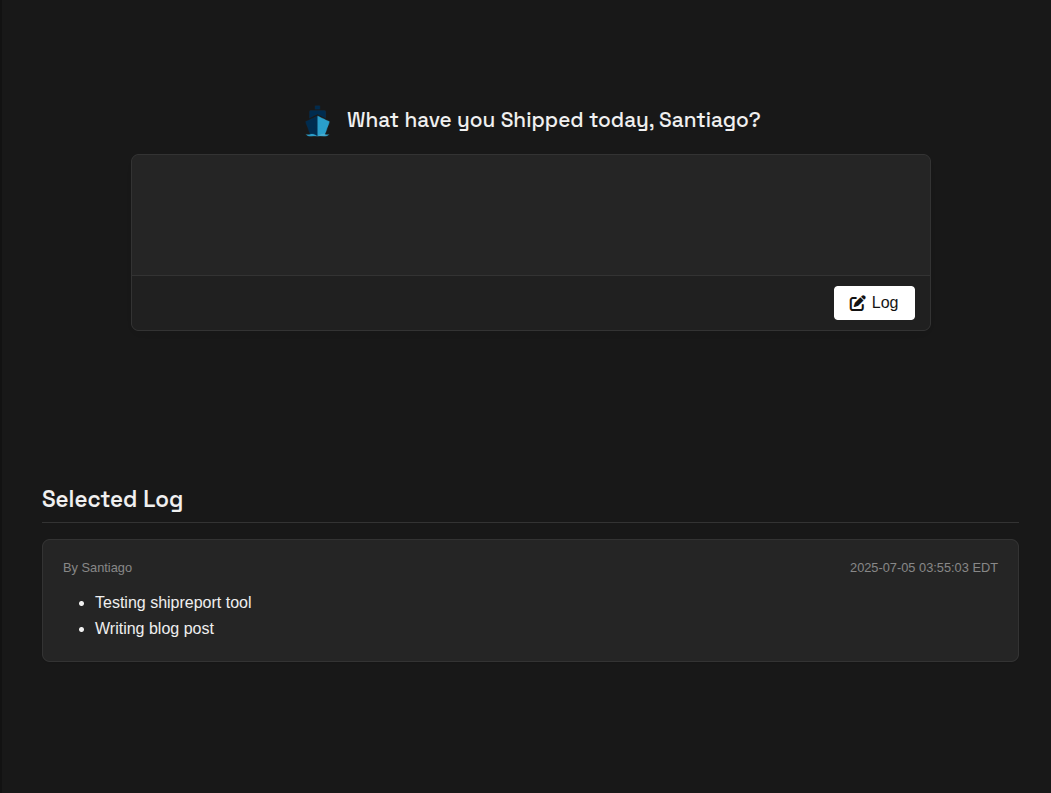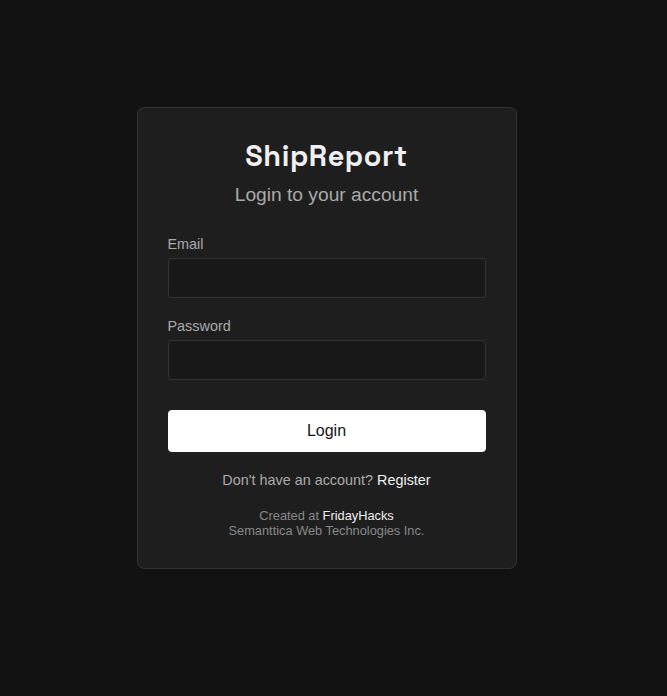The Power of Daily Progress Logging
In our fast-paced world of rapid development and AI-assisted building, we often find ourselves so obsessed with the activity of “shipping” without truly understanding what we have accomplished along the way. We live in this culture of “shipping” projects in record time, yet paradoxically, many of us struggle to see our own progress clearly.
This is where the ancient practice of logging and self-journaling becomes not just relevant, but essential. The act of documenting what you have built, what you have learned, and what you have overcome creates something far more valuable than a simple record, it actually builds a foundation for sustained motivation and clear progress tracking.
Why Logging Your Work Transforms How You Build
1) Creates Accountability and Clarity
When you sit down each day to write “what have I shipped today?”, you are forced to put your efforts into concrete achievements. This seemingly simple exercise reveals the difference between being busy and being productive. It transforms vague feelings of “I worked hard today” into specific, measurable outcomes.
2) Builds Momentum Through Visible Progress
There is psychological power in seeing your daily entries accumulate into weeks and months of documented growth. Each log entry becomes evidence of forward movement, creating a visual timeline that captures the common developer experience of feeling of “not making progress”. When motivation fades, you can look back and see what you have built.
3) Identifies Patterns and Bottlenecks
Over time, your logs reveal patterns you could not initially see in the moment. For instance, you will notice which types of work energize you, which tasks consistently take longer than expected, and where you tend to get stuck. This information allows you to optimize your process and avoid repeated mistakes.
4) Transforms Setbacks into Learning
Bad days become valuable data points rather than sources of discouragement. When you log struggles alongside successes, you create a more honest and ultimately more motivating record of your journey. You will see that every successful builder has days of debugging, refactoring, and starting over.
5) Creates a Personal History of Growth
Your logs become a unique timeline of your development as a builder. Looking back at entries from months ago, you will be surprised at how problems that once seemed difficult now feel like a routine. This perspective shift is incredibly motivating and builds confidence for tackling new challenges.
The challenge is not understanding the value of logging, but rather making it simple and enjoyable enough to become a daily habit. That is exactly why we created ShipReport.
Introducing ShipReport
ShipReport is a simple Flask application that provides a Claude.ai-like interface for logging daily ship reports. Born from our own need to track progress and stay motivated, it removes complexity to focus on the essential act of documenting what was accomplished.
 ShipReport - Landing Page
ShipReport - Landing Page
The application stores logs in a PostgreSQL database and displays them in a clean, user-friendly interface with user authentication. It does not matter if you are a solopreneur working on side projects or part of a team wanting to track individual contributions, ShipReport makes it effortless to build the logging habit that transforms how you work.
Core Features
Core Functionality:
- Clean, minimalist interface similar to Claude.ai with a welcoming “Hello [username], what have you shipped today?” prompt
- Centered input area with markdown support for rich text formatting
- Personal logs that are only visible to the user who created them
- User registration and authentication with session-based security
- PostgreSQL database for reliable, persistent storage
 ShipReport - Index Page for Logging
ShipReport - Index Page for Logging
Time-Based Organization:
- Recent logs for individual entries ordered by creation date
- Weekly logs that aggregate entries by week, perfect for weekly reviews
- Monthly logs that aggregate entries by month, ideal for broader reflection
- All timestamps stored in UTC with user timezone preferences for display
Design and Usability:
- Responsive design that works seamlessly on desktop and mobile
- Dark mode and light mode switching for comfort in any environment
- Markdown support including headers, bold, italic, code blocks, lists, and links
- Clean typography and spacing optimized for readability
 ShipReport - Login Page
ShipReport - Login Page
User Experience:
- Simple registration with name, email, and password
- Automatic author attribution using the logged-in username
- Intuitive navigation between different time views
- Fast, responsive interface that does not get in the way of your thoughts
Technical Implementation
Setup Instructions
Prerequisites:
- Python 3.8 or higher
- PostgreSQL
Project Structure
ship-report/
├── app.py # Main Flask application
├── requirements.txt # Python dependencies
├── .env.example # Example environment variables
├── static/ # Static assets
│ ├── css/
│ │ ├── style.css # Main application styles
│ │ └── auth.css # Authentication page styles
│ └── js/
│ └── script.js # Client-side JavaScript
└── templates/
├── index.html # Main application template
├── login.html # Login page
└── register.html # Registration page
Roadmap: Building Beyond the MVP
Immediate Improvements:
- Enhanced aggregate views for weekly and monthly summaries
User Experience Enhancements:
- Password reset functionality
- Export data functionality using ship.report URL shortener
- Search functionality across all logs
- Tagging system for better organization using
[project]syntax
Motivation and Engagement:
- Streak tracking similar to GitHub’s contribution graph
- Weekly and monthly email notifications summarizing accomplishments
- Status page at
status.shipreport.comfor transparency
Growth and Sustainability:
- S3 bucket backup for data reliability
- Social media integration with link to x.com/ShipReport
- Stripe payment integration - $5/month subscription model
- A more detailed
logsdirectory in the application root directory with comprehensive logging metadata of every entry (for debugging and troubleshooting purposes)
Why This Matters
ShipReport is not just another productivity tool, we see it as a commitment to the idea that progress becomes real when you take the time to see it clearly. In a world of endless todo lists and project management complexity, sometimes what you need most is the answer to a simple question: “What did I ship today?”.
The act of answering that question daily, in your own words, with the knowledge that you are building a personal timeline of growth. We think that is where the real magic happens. It is where PRs and specs transforms into visible progress, where discouraging days become valuable learning experiences, and where the long journey of building something meaningful becomes motivating. Oh, and in case you were wondering, the logo of ShipReport is AI-generated by Chatgpt.
Start logging. Start shipping. Start seeing your progress clearly.
Get Started: shipreport.com
Credits: ShipReport Logo was AI-generated by Chatgpt